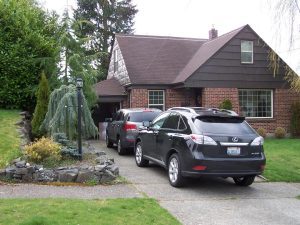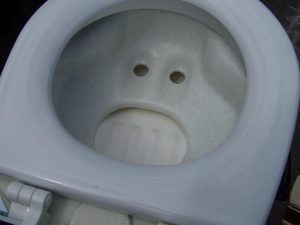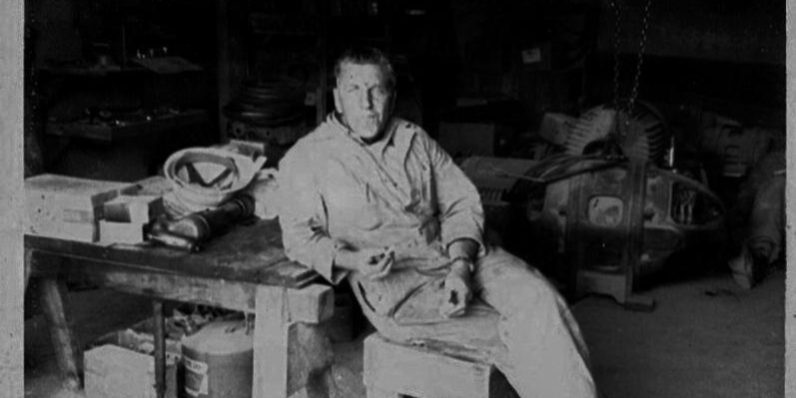I need you to take this journey with me with an open mind.
I am not going to burden you with statistics or charts or cumbersome Ven diagrams. I am simply going to tell you what I saw, what I experienced, what it felt like . . . and then I’m going to end this discussion with a question for you to contemplate.
This essay will be written from the point of view of the lower working class and middle working class, since those are the groups I knew well, hung with often, and have any substantive data about. I cannot speak for the upper middle class or the wealthy, neither of whom were part of my social circle in the 50’s, neither of whom are now part of my social circle today.
With that preface out of the way, let’s begin our journey.

Post WWII, the 1950s, my formative, childhood years, Tacoma, Washington. At that time, Tacoma was divided geographically with net worth the determining factor. For the most part, the poor lived in south/southeast Tacoma; the middle class called the north end their home, and the rich clung to cliffs with amazing views, splashed their toes from waterfront property, and Lakewood, a suburb of Tacoma at the time. Not a perfect representation, certainly not exact, but a broad view more accurate than not.
The north end, where I spent twenty-five years, was a collection of safe neighborhoods, dominated by the working class, many of whom were World War 2 veterans or Midwest transplants, carving out their own slice of the American Dream. The predominant “bread winner” was the man in the family; the woman in the family was often relegated to raising children, shopping, running errands, and cooking meals. And so it was during the 50’s, the 60’s, and the 70’s. A slight change was occurring, during those three decades, the number of women entering the workforce slowly increasing, but really not so you would notice.
Unions were strong, so strong that crossing a picket line was an action which could easily end in bodily harm, or your car being damaged by clubs and/or rocks. Unions guaranteed a good, living wage for its workers, plus benefits. Workers would never become rich from a union job, but they also would never have to be concerned with being homeless, or not having enough food for the family. By and large, it was a comfortable class who believed if they worked hard they could own a home, carve out a decent living for their families, maybe have a little extra to set aside for emergencies or simply a nicer vacation.
I knew of no one, during the 50’s, 60’s, and 70’s, who did not have medical coverage. I’m not saying it did not happen; I’m simply saying in my circle of friends, and coworkers, it was assumed that if you got sick, or if you just needed a wellness visit with the doctor or dentist, it was not going to be a financial burden you could not pay for.
Most of my friends lived in homes that their parents had purchased. I knew no one who rented a home. Apartments, yes, but actual houses . . . almost all purchased at an affordable price for those economic times.
I do not recall my parents going grocery shopping and complaining about the high price of food. I do recall my parents getting a loan each December to pay for Christmas presents, and then spending eleven months paying off that loan, a tip of the hat to the reality of being lower middle class. Things did not come easy. Nothing was given to you. Still, if you worked hard, you were rewarded with a wage which could provide for your family. And the people I knew were satisfied and basically happy with that arrangement. They did not mind hard work. They were proud of their work ethic. And those I knew spoke highly of the company they worked for, had a friendly relationship with management, both sides of the bargaining table happy with the bargain struck.
The boy becomes a man
When I graduated from college in 1970, I opted for a Teamsters job rather than some office in a corporation, and I made $10 per hour, the equivalent of about $70 per hour in today’s dollars. Not married, with no debt at all, I easily saved money, even bought property when I was twenty-three, paid cash for an acre of land. It hardly made a dent in my finances to do so. Bought a new Porsche 914, paid cash for it, such was the life of a single man working full-time.
Got married in 1978, easily purchased and financed a home, the mortgage payments no problem, at the time me working my first teaching job, making $13,000 per year.
Let that sink in.
Married, two stepchildren, first year teacher pay of $13,000 yearly, a mortgage. And the same could be said for most, if not all, of my friends. I knew of none who struggled, all with union jobs, all living their own version of the American Dream.
And then it all turned to shit.
The 1980’s.
The economic changes were so dramatic as to be impossible to overlook. For the first time, it became, at times, difficult to pay the monthly bills. Not always, mind you, but sporadically there would be months when the wage earned would not stretch far enough. For the first time I knew people who were opting for an apartment rather than home ownership. For the first time, I heard of children opting for vocational college rather than the too-expensive four-year higher education. For the first time, I knew someone who had their home foreclosed and, for the first time, I knew of a family which did not have medical coverage.
Unions, at first, became weaker, and slowly they simply disappeared. More and more jobs were offered which did not include medical benefits. Many of the small, local stores I frequented as a child, and as a teen, closed as mammoth retailers opened and gobbled up the competition.
My first job, a Teamster’s warehouse position, which paid $10 per hour in 1970, was no longer a Teamster position and it paid, are you ready for this, $10 per hour, a full decade later.
And it got worse in the 90’s, worse as the new century unfolded, and is worse today.

And so, my brilliant friends and readers, I ask you this simple question:
What changed?
How did the American Dream, which was once attainable, become a fantasy?
I ask you to think before you answer, because the answer is not as simple as saying the Republicans screwed us, or those damned Democrats ignored the working class.
Not that simple at all, and yet the answer is as old as recorded history.
Give it some thought. And then ask yourself one more question: what are you going to do about it?
There are far too many people in this country, sticking their heads in the sand in hopes that the bad times will magically disappear. We have far too many people in this country blaming the other person for their woes, and I tell you true, that is exactly what a small minority of people hope you will do.
What are you going to do about it?
Every four years the power shifts, either back to the Democrats or back to the Republicans, but nothing changes. Same shit, different day. Meanwhile, prices continue to rise while wages remain stagnant.
Something has to change, and my question to you is this: are you going to be a positive participant in change or are you going to continue to spew hate on your fellow citizens, simply because they ride an elephant rather than a donkey?
I think, just one man’s opinion, that we need a revolution in this country, a workers’ revolution, and I hope to God it happens in my lifetime. But hey, what do I know. I’m just an old man who doesn’t realize that making snarky comments on social media is really the most effective way to make change happen.
Yes, that was sarcasm.
Blessings to you all!






Ann, no reason to apologize. I love hearing your thoughts on this question. I, too, have my doubts about the work ethic and motivation of today’s generation. I think they need to be punched in the mouth a few times, pay their dues a few times, and then they can begin to appreciate the benefits of hard work. I also believe that good health care is the right of all citizens of a country. Nobody should be denied health care due to a lack of money. That, to me, is a fundamental right for all citizens.
Hi Bill! My parents were working class. My Dad became an optometrist, worked hard and bought our first house when I was 4. I was brought up there, in that bungalow, then in a house just up the road – closer to the village so that Dad could have his own practice and patients could get there more easily.
We had no worries on the health front as our NHS (National Health Service, set up just after the war) provided us with local, free health care from surgeries to hospitals. That’s all changing as I write this and it’s well nigh impossible to get a doctor’s appointment – the system has crumbled and we it feels to me as though we are approaching 3rd world status. That is no exaggeration.
I think too many people expect things on a plate; benefits, easy jobs, no need to do anything to help oneself. Few try to make a difference- in some neighbourhoods they do.
I think the answer is that we no longer want to fight hard for jobs, work hard for self-esteem, or get together as communities and put others first. Those who do try get no help at all though, on any front, and the good suffer.
Government, whichever side you go, are after power, money and self-promotion, in the name of ‘working for the people.
We have to stand up and make our voices heard and make sure that we, our families and our neighbours, survive.
Sorry that’s a bit long but I needed to get it out there!
It’s a great question!
Hope all’s well with you and yours, Bill.
Ann
Andrea, I too, am in a very good position financially, partly because of decisions made in the past, partly because I eliminated my debt in recent years, but I am of a small minority. I wish we had a Workers Party to go along with the Democrats and Republicans. Our political system needs a massive shakeup.
Thanks for sharing your experience.
Sis, it’s not looking good for us to ever sit down at a table together but damn, it sure would be nice. By the time you and I got through we will have solved all of the world’s problems. LOL
Hell, who knows, maybe there is still a chance I will get back east while I’m still drawing breaths.
Hugs
Bro
Hi Bill, it’s very interesting to get your thoughts on this from a US perspective. I’m from a traditional working class background and I would say that it was probably the 80s here too when things started to get worse and our Prime Minister at the time, Margaret Thatcher has a lot to answer for in terms of breaking down the unions and decimating some of the ‘manual’ industries such as mining. I was a union rep when I started my career and we do still have good representation in local government, but the powers of unions are much reduced these days. I don’t know that there’s been anything like the current cost of living crisis in recent memory, in which many people who are working are struggling to make ends meet, use of food banks has massively increased and people are struggling to pay their utility bills. I’m in a very fortunate position now and I often feel grateful for that.
Bro…..Oh, what a topic! I dare not get started for fear it will result in a response longer than your article! I will say, what I wouldn’t give to be able to sit around a table with you & Bev ….& even any others who might care to join us! I have answers/opinions to your questions bro. More importantly, It’s a desire & habit of mine to talk with others to exchange our thoughts, ideas and possible actions. As we both seem to realize , this mess we find ourselves in, is much bigger, heavier & scarier than any ONE of us can hope to handle currently, much less solve! I’m all IN for a Revolution, bro. For now, I’ve taken numerous steps to keep my own nose above these flooding waters. You’ve got me thinking buddy ….thanks for the kick in my struggling, worried butt. We should not take this idly…ever!! Hope we can share more on this topic!
Sending love, hugs & prayers as always! Big Sis